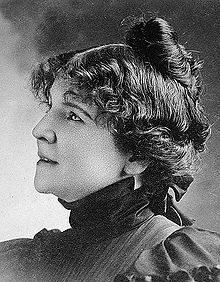Post (c) by Angela Raines
aka Doris McCraw
 |
| Photo (c) Doris McCraw All Rights Reserved |
I thought it might be fun to 'interview' Helen Hunt Jackson using her own words. Helen was born in 1830 and died in 1885. She began writing in earnest around 1865. Enjoy the interview.
You traveled a great deal, as we know. What were your observations on your trips west?
Prairie, unfenced, undivided, unmeasured, unmarked, save by the different tints of different growths of grass or grain; great droves of cattle grazing here and there; acres of willow saplings, pale yellowish green; and solitary trees, which look like hermits in a wilderness. These, and now and then a shapeless village, which looks even lonelier than the empty loneliness by which it is surrounded, - these are all for hours and hours. We think, “now we are getting out into the great spaces.” “This is what the word ‘West’ has sounded like.”
You talk about the places you have traveled, the beauty and grandeur, but lower elevations seem special to you also. Why is that?
I think that true delight, true realization, of the gracious, tender, unutterable beauty of the earth and all created things are to be found in outlooks from lower points—vistas which shut more than they show, sweet and unexpected revealings in level places and valley, secrets of near woods, and glories of every-day paths.
You are quoted as saying there are nine places of worship in Colorado Springs. What are they?
There are nine “places of divine worship” in Colorado Springs, -- the Presbyterian, the Cumberland Presbyterian, the Methodist, the South Methodist, the Episcopal, the Congregationalist, the Baptist, the Unitarian, and Cheyenne Canyon.
Do you enjoy winters?
... winter..... memory and fancy will have their way; and, as we sit cowering over fires, and the snow piles up outside our window sills, we shall gaze dreamily into the glowing coals, and, living the summer over again, shall recall it in a minuteness of joy, for summer days were too short and summer light too strong. Then, when joy becomes reverie, and reverie takes shape, a truer record can be written....
Now, if you don’t mind, I would like to spend some time with questions about your work for the Indians in the late 1870's and early 1880's.
First, in your article 'Oldest House' you mention the fate of the people who lived in the area prior to the Spanish residence in Santa Fe.
When Coronado explored Mexico in 1540, he found many Indian pueblos on the Rio Grande River, and speaks of several which must have been near the present location of Santa Fe. The one which it is generally supposed was on its precise site at the time stretched along its river-banks for six miles. Colorado reported that he found here a beautiful and fertile valley, under high cultivation by the Indians. It is hard to realize...that a race which, over three hundred years ago, had reached comfort and success in agriculture and pastoral occupations, should be today an abject, supine, wretched race...is a melancholy comment on the injustices they have received.
Those are pretty harsh words. It is obvious you have strong feelings about the issue.
The book, Century of Dishonor, as its title indicates,..gives a sketch of the United States Government's dealings with some of the..tribes.
Right sentiment and purpose in a senator..representative here and there, are little more than straws which make momentary eddies, but do not obstruct the tide.
a..states representative argued in Congress that is is very hard if the government will not for..advantage, break a few treaties when it has broken so many for the advantage of other states....what a logic of infamy...because we have had one century of dishonor, must we have two?
What, if anything, can be done?
The only thing that can stay this is a mighty outspoken sentiment and purpose of the great body of the people....for the American people, as a people, are not at heart unjust. If there be one thing which they believe in more than any other,...it is fair play. As soon as they understand....they will rise up and demand it...
Thank you, Mrs. Jackson, for taking the time to share some of your thoughts and words with us.
 |
| Photo (c) Doris McCraw All Rights Reserved |
I hope you enjoyed these insights into this interesting, complex, and fearless woman. Helen seemed to have no problem with stating her opinion, regardless of what others may have thought. She was also someone who loved the outdoors and the flora and fauna. She was a woman to be remembered.
(The 'interview' was from the writings of Mrs. Helen Jackson, also known as HH. The use of the name Helen Hunt Jackson was used primarily after her death in 1885.)
Until Next Time: Stay safe, Stay happy, and Stay healthy.
Doris






